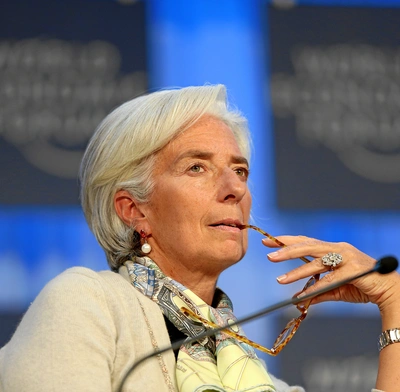European Central Bank President Christine Lagarde has renewed her criticism of Bitcoin, saying the cryptocurrency has “no intrinsic and no underlying value,” framing it once again as a speculative asset rather than a legitimate form of money.
ECB’s Lagarde Reignites Bitcoin Debate, Says It Has “No Underlying Value”

Speaking at a Business France event in Paris this week, Lagarde said she was aware her remarks would provoke a reaction from crypto supporters but stood by her position.
“I’m still of the view that there is no intrinsic value and there is no underlying value to it,” she said. “It doesn’t mean to say that there is no hype created as a result that some can associate with a value, meaning a price that moves up and down depending on market sentiment.”
Her comments reignited a long-running divide between some central bankers and digital-asset advocates over whether Bitcoin represents financial innovation or speculative excess.
Speculation or utility
Lagarde’s remarks reinforce her consistent view that Bitcoin remains a speculative technology, not a stable store of value or reliable means of payment.
While she acknowledged the strong belief among crypto communities, she drew a sharp line between price and value, suggesting Bitcoin’s market movements are driven primarily by sentiment rather than fundamentals.
The European Central Bank maintains that cryptocurrencies pose risks to financial stability, lack intrinsic worth, and have no backing comparable to sovereign money. ECB officials have repeatedly warned that speculative surges in digital assets could create vulnerabilities for retail investors and payment systems.
Euro weakness
Lagarde’s comments come as the euro’s purchasing power continues to erode. According to ECB and Eurostat data, the currency has lost more than 40% of its purchasing power since 2002, heightening public frustration over inflation and monetary credibility.
Eric Balchunas, senior ETF (exchange traded fund) analyst at Bloomberg, reacted online, comparing Lagarde’s remarks to “asking McDonald’s CEO whether WeightWatchers has value,” implying that traditional institutions have little incentive to validate alternatives to state-backed currencies.
ECB credibility test
The exchange underscores the ECB’s broader challenge to maintain public trust in the euro as digital finance expands beyond traditional banking control.
The digital euro project, now in its design phase, aims to modernize payments and preserve the role of central bank money in a digitized economy. However, ECB surveys have shown that privacy remains the top concern among respondents, reflecting scepticism about data use and the potential for financial surveillance.
The bigger picture
Lagarde’s remarks reflect a deeper tension between centralized and decentralized models of money. As Europe grapples with slowing growth, elevated inflation, and political pressure to support households, the ECB’s communication challenge is growing: to defend fiat credibility while technological alternatives gain momentum.
Whether Bitcoin ultimately proves a speculative bubble or a durable monetary alternative, Lagarde’s speech underscores one reality, the debate over what constitutes money is no longer confined to economists. It’s playing out in markets, on social platforms, and across political lines.







